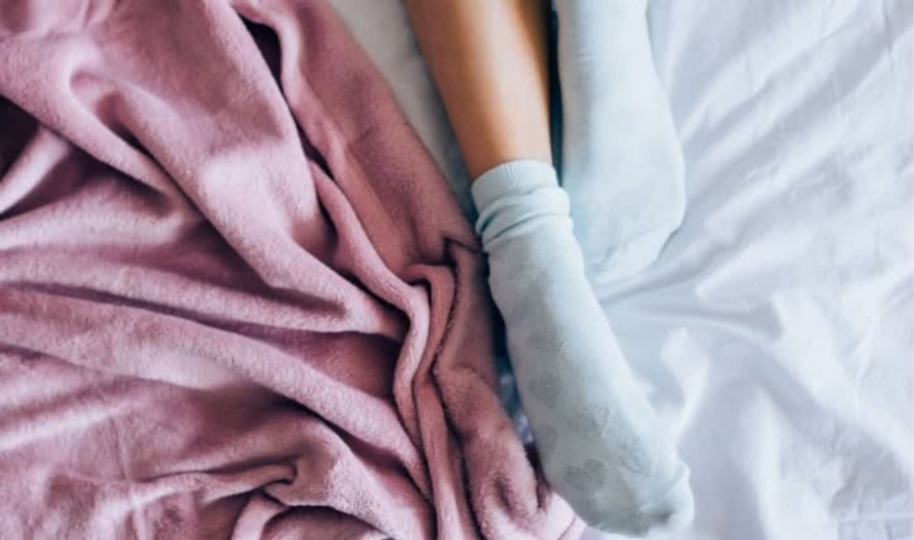
Menopause can interfere with you sleeping well. Learn how to relieve sleeplessness, night sweats and hot flashes and ways to help achieve the a good night’s sleep.
![]()
With major changes happening during menopause, it’s not surprising that menopause symptoms aren’t just physical. Sleep disturbance can affect up to 50% of women during menopause – for many women symptoms of menopause like hot flushes and night sweats may be the main cause.
The exact reason why sleep disturbance is so common in women going through menopause isn’t clear. But quite a few factors are likely to be culprits.
All those hormonal changes during menopause may be involved in disruption to your body clock, which may make it harder for you to fall asleep, or stay asleep.
Menopause hot flushes at night– which are very common – can cause your body temperature to rise while you sleep. This can make you wake up through the night and reduce your sleep quality.
As we all age, other health conditions can develop and start to have an impact on our sleep. For example, joint pain and mild anxiety due to menopause can contribute to poorer sleep.
Since sleeping well can be such a challenge during menopause, it’s helpful to look at ways of helping to improve your sleep. We’ve put together our top natural remedies and lifestyle tips that may support a more restful sleep. Some of the things you can do are especially helpful for women with menopause symptoms, and others are great for everyone who needs help to sleep well.
Regular aerobic exercise is well known for helping improve sleep, mood and vitality. Just remember not to exercise just before bedtime, as that can sometimes interfere with sleep.
Caffeine is a stimulant that can be long-lasting. For some people it can stay in their system for up to 8 hours, so consider switching to decaf if you enjoy an afternoon coffee. Caffeine can also trigger menopausal hot flashes in some women which may make it more uncomfortable to get to sleep.
Alcohol might make you drowsy, but it’s not necessarily going to help you with sleep. In fact, it can negatively affect the quality of your sleep. So, like caffeine, it’s best avoided if you struggle with sleep.
If you suffer from hot flushes, keeping your bedroom at a comfortable temperature that’s not too warm can help with sleep. A cool shower before bed and breathable sleepwear are also good ways to try to stay cool and sleep through the night or at least help minimise sleep disruption.
Relaxing activities such as doing breathing exercises, meditation or yoga, reading a printed book, and listening to soothing sounds may also help you to relieve nighttime tension so you can sleep well.
Sticking to a sleep schedule is very helpful for quality sleep. So it’s best to try to go to bed and get up at the same time each day. And if you nap, make it early afternoon (aim for before 3pm). When suffering from sleeplessness, a specific herbal extract combination of Valerian and Hops can help reduce time taken to fall asleep. And when sleep cycles are disturbed and can also assist in restoring natural healthy sleep cycles over 2 weeks.4-5
Exposure to natural daylight, especially during the morning, can help in resetting and maintaining your sleep pattern.
Alternative to Valerian and Hops which helps more specifically with sleeplessness, some natural medicines for menopause, including Femular Forte, have been shown to help with disturbed sleep as a symptom of menopause. Clinical research has shown that Femular Forte or the high dose of Femular (2 tablets) can relieve disturbed sleep of menopause and other menopausal symptoms that can keep you up at night like — joint pain, nervous tension and night sweats.1-3
It is also important to speak to your health professional if you find that despite improving your sleeping habits disrupted sleep persists. Your health professional can help you get a an understanding of what else might help improve your sleep.
These medicines may not be right for you. Read the label before purchase. Follow the directions for use. If symptoms persist, talk to your health professional.
Scientific References
1. Lopatka, et al. Journal of Menopause. 2007; 2:16-21.
2. Schellenberg et al., Evidence-Based Comp and Alternative Med 2012. Funded by Max Zeller Soehne AG.
3. Drewe, et al. Phytomedicine. 2013; 20:659-666. Funded by Max Zeller Soehne AG.
4. Fussel A, et al., Eur J Med Res. 2000;5:385-390.
5. Koetter U, et al., Phytopher Res. 2007;21:847-851.
Lifestyle insight
Explore the more sensitive questions about menopause, plus some surprising symptoms, and get the straight-up answers you need. It’s not so daunting when you know your options.
Lifestyle insight
Explore the more sensitive questions about menopause, plus some surprising symptoms, and get the straight-up answers you need. It’s not so daunting when you know your options.
Lifestyle insight
Every woman’s experience of menopause can be different. Learn the first signs, symptoms and bust some myths about menopause. The best person to detect menopause as it approaches is probably you. And by being on the lookout for symptoms, you'll be able to gradually relieve them as they appear.